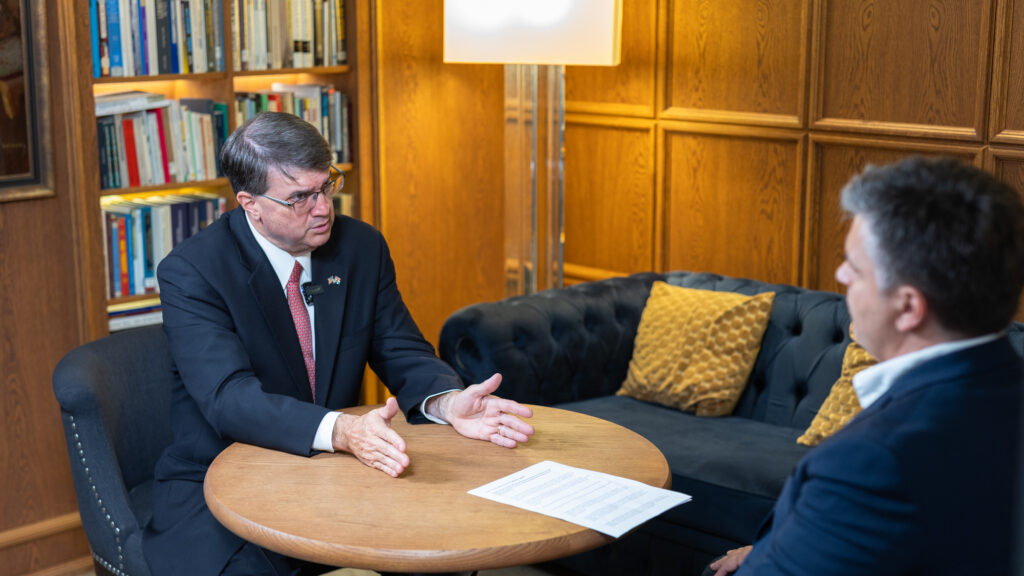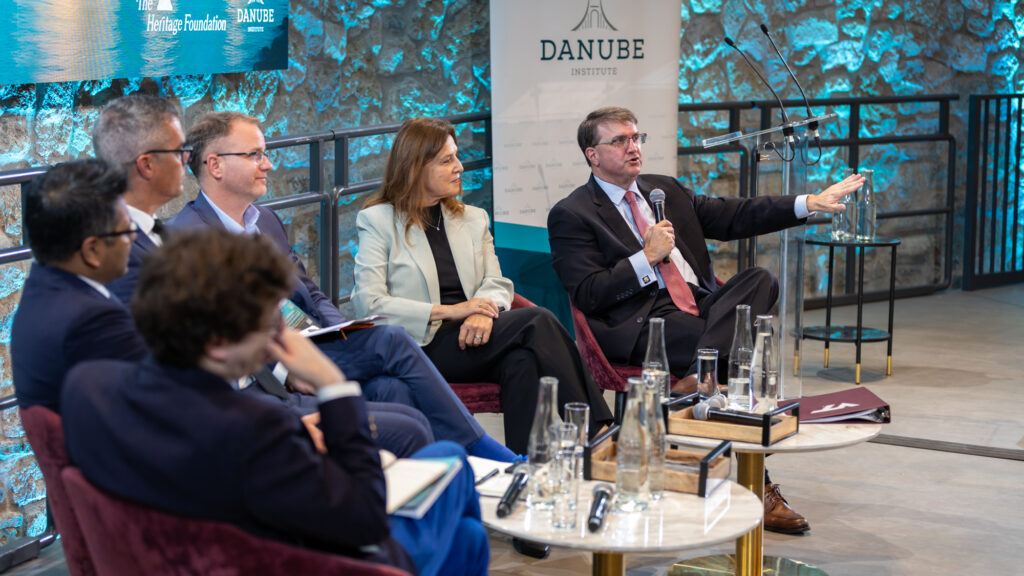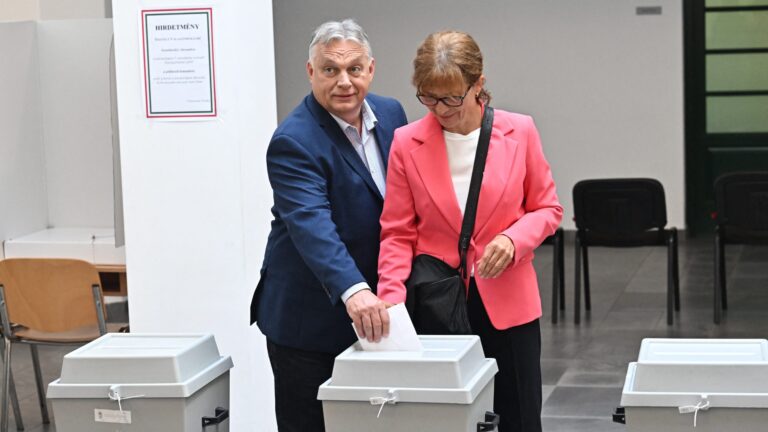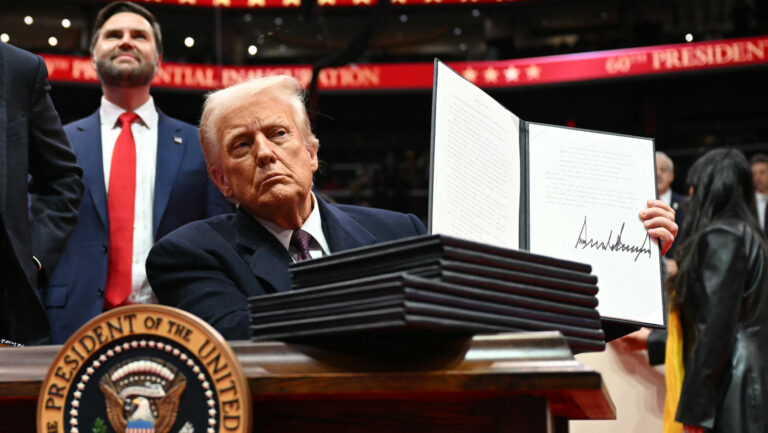Robert Wilkie is an American lawyer and government official, Chairman of the Center for American Security at the America First Policy Institute. From 2018 to 2021, during the first Trump administration, he was the United States Secretary of Veterans Affairs, and previously Under Secretary of Defense for Personnel and Readiness from 2017 to 2018. In the administration of President George W Bush, he served as Assistant Secretary of Defense for Legislative Affairs. He holds an honours degree from Wake Forest University, a Juris Doctor from Loyola University College of Law in New Orleans, a Master of Laws in international and comparative law from Georgetown University, and a master’s in strategic studies from the United States Army War College.
***
Many months have passed since Donald Trump was installed as president, and his geopolitical promises remain unfulfilled. What is the reason for that?
I think the President’s predecessor blamed all the problems of the United States on the world. You saw that in the form of his ambassador to Hungary, who raised ugly Americanism to a new level. And you saw the immediate changes here when President Trump removed that Ambassador and brought in a new way of thinking and a way of dealing with Hungary that honoured your history and your place in the world today. That’s exactly what he’s doing on the world stage, but he had to start with the concept. One, America is back. Two, we will deal with the world through strength, not through retreat. And that policy has to be flexible. For instance, he has given the Russians chances to engage in a ceasefire three times. Zelenskyy has agreed to all three, Putin has not, and you see the ratcheting up of pressure and the continued flow of American weapons into Ukraine.
‘You saw that in the form of his ambassador to Hungary, who raised ugly Americanism to a new level’
In Gaza, Hamas would not stop, even though the President had offered them a way to stop. He knew that the Iranian pipeline was still moving. The Iranians and their proxies were disrupting international sea lanes, affecting the United States. He helped the Israelis, and he removed the Iranian nuclear threat. We have a flexible American foreign policy that understands our economic power but also buttresses that with the kinetic power of our armed forces. That’s a message that we’re sending to China. We certainly sent it to Iran. And with Putin, I think it has come to the point where severe sanctions will start flowing in the near future.
Diplomacy came first, and we saw many gestures made to President Putin, even by President Trump.
Absolutely.
I guess there will be a time when the window of opportunity for negotiations closes, and there should be a next step: the pressure. What tools of pressure does Trump have? Sanctions only, or a little bit more?
Well, it’s a combination of things. To use an old Cold War term in the United States, it’s a flexible response. First of all, the President’s not going to let Ukraine fail. He is not going to let that nation fail. But in order to get to peace, he has put on the table the potential to remove the Russians from the world banking system. He has told Europe to no longer buy oil and gas from Russia. Buy it from us. We have our own energy independence now. We’re the world’s number one producer of oil and gas again, and he has warned nations around the world that doing business with Russia will cost them. We’re already starting to see gas lines in Russia. We didn’t see that the first two or three years of this conflict, because Putin has been able to cocoon his population, or the two population centres he cares about, St Petersburg and Moscow, from the ravages of war. That is starting to evaporate, and the fact that he’s lost ten times as many dead as the United States lost in the entire Vietnam War says that’s an incredible price for having gained very little territory.
‘First of all, the President’s not going to let Ukraine fail’
And now we see him moving to typical Russian tactics, attacking civilians, attacking schools, attacking hospitals, but real quick, he crossed the line last week. It’s the first time since 1949 that NATO has engaged Russians on NATO soil…
The drone attacks?
Yes. He’s constantly testing. He’s a great actor, because if you look at all of the red lines that he’s drawn since this conflict, they’ve all been mirages, they’ve been bluffs. I mean, the notion that he could take on Poland in his current condition is fairly laughable, but that negates something that you know in Hungary better than anyone in the West, possibly with the exception of Poland and the Baltics. And that is the traditional regenerative power of the Russian state; they can absorb incredible hardships. The only difference being, this is not the Russia of 300 million. This is a much-reduced state, and we’ll see how long he can sustain a force in the field at the casualty rate that he has.

The big question is whether Moscow can be pressured by economic sanctions to the negotiating table or not. Russia has reserves, and the country has China behind it, a big consumer of Russian energy, so Putin can continue the war for some time.
That’s up to us to pressure the Chinese. There’s a bill in the United States Senate that has 92 sponsors out of 100 Senators that would put 100 per cent tariffs on the Chinese if they continue to buy Russian oil. The President has told the Chinese: You have to talk to the Russians. And the other thing that is there for us is how we behave. China is watching how we deal with Putin. They had absolutely no fear of Joe Biden. But they are watching because Donald Trump, in his first term, I was there, he had 300 Russians killed in the Syrian desert. Putin stayed in his box, didn’t say a thing. He killed Soleimani, the world’s greatest terrorist, and the Iranians, the mullahs, stayed in their box. So, he has a track record of actually acting forcefully, but China is watching, because that will dictate, in some way, how they deal with Taiwan in the near future.
But we saw some weeks ago the Tianjin meeting, the summit of the Shanghai Security Organization, and it’s a bit contradictory to what you are saying now, because if China is watching Trump, at the same time, it’s forming an anti-Western coalition before our eyes. So what’s the message of Tianjin?
Well, that’s the new axis of evil. I mean…
An open one.
It’s an open one, but we’ve dealt with that before. You know how? We drew a line in Western Europe. We told the Soviet Union, we will never recognize your acquisition of the Baltic states—which gave them hope. There were friendly nations to the Soviet Union, like Cuba, North Korea, and Vietnam; we dealt with that. So what you had there was the new axis.
But look, the mullahs are in an incredibly reduced state right now, courtesy of both Israel and the United States. Putin is not in a position where he’s going to be able to do much to help the Chinese, because he will become a vassal if it keeps going down this road. And the last thing China needs, with the perilous state of its own economy, is people in Europe and in the Pacific saying enough to them. China has to make that calculation. Xi is not stupid, and if Putin actually becomes too aggressive, then China has to make the decision—do we cut him off, or do we go down with him? And I think Xi is too smart to let it go.
‘China is watching how we deal with Putin. They had absolutely no fear of Joe Biden’
We saw how the pressure of new tariffs worked on India. Its prime minister appeared at this summit, even though India is America’s strategic partner. Was it a surprise for America? What about India’s position?
The history of India since the British departed in the 1940s has been just what you saw. They’ve been able to play both sides of the divide, whether it was the communists or the free world, up until the fall of the Soviet Union. So that’s nothing new. They weren’t in the picture with what I would call the axis of evil. That was Xi, Putin, the mullahs, and Kim, but Modi is not going to be in that picture. He has too much at stake with the West to fully align with that partnership. But I think if you’re going to impose tariffs like this, you have to impose them on the greatest malefactor when it comes to buying Russian products, and that’s the Chinese. I wouldn’t have done that just to India. I would have said that if we’re going to do this, the big message is for China.

Hungary is also dependent on Russian energy.
And we want you to use American energy.
That’s a hard question.
You have a unique history with Russia. Russia holds the sword of Damocles over any nation that buys energy from it. Putin can cut it off whenever he wants, threatening to do so. With the United States, first of all, it’s cheaper and better, it’s cleaner, and you’re not going to have the threat of America cutting off supplies to its friends. And with Trump, you have the ultimate businessman in the White House. That is the message we’ve been sending throughout Europe.
Hungary has an opt-out in the European Union; Slovakia and Hungary can buy Russian gas and oil now, but the situation can change if Trump steps in. Do you think that will happen?
I think it might happen. Look, you know how close he is to Mr Orbán for many reasons, particularly cultural. So, I don’t think you will see the same kind of pressure tactics that you would see in other situations.
‘Russia holds the sword of Damocles over any nation that buys energy from it’
You’re certainly not going to see the president of the United States saying things about Mr Orbán that he would say about President Macron in public, because they’re too close and they share so much. But I do think that, particularly with the Secretary of State, there will be more outreach to Hungary and say, just cut it. You’re better off with us than having Putin control the spigot.

About the Gaza war: the US wants Israel to use other methods of war, Washington wants a solution, and Israel takes unilateral steps, like the Doha attack on Hamas leaders. Is there any point at which Washington doesn’t back Israel further?
It’s not going to happen. First of all, if Israel didn’t exist, the United Nations would go out of business. Israel is the only permanent agenda item on the Human Rights Council. It’s not China, it’s not Venezuela, it’s not Iran. In fact, 40 per cent of the UN General Assembly resolutions of the last ten years have been about Israel. The President has offered Hamas the same things that he’s offered Putin. They have rejected that. The President has been very vocal in his condemnation of Macron and Starmer attempting to create, out of thin air, a Palestinian state, which only gives the Palestinian terrorists sustenance. The support for the State of Israel is going to be there. And we see a new level of deterrence on the part of Israel—if you harm Jews, you will die, it doesn’t matter where you are. Israel sent a message in Doha, which said enough. And Trump did that in his positioning against the Iranians in his first term.
Do you think that Israel can reach its goals of war, like eliminating Hamas and returning the hostages?
I have hope that they can do that. But the bottom line for Israel is that they have to eliminate a terrorist threat the way they have eliminated Hezbollah, the way they have eliminated the Iranian nuclear threat. I always go back to what Golda Meir said: ‘If someone tells you over and over again he wants to kill you, believe him’—and that’s why I despise the Palestinian Authority. It’s corrupt. It pays its people to kill Jews. The Israelis will do everything they can to rescue those hostages.
‘The support for the State of Israel is going to be there. And we see a new level of deterrence on the part of Israel’
But for those people who say: ‘You can’t kill an idea’—well, I think we did a pretty good job of eliminating Adolf Hitler’s state structure. There’s no national socialist party ready to take over Europe now, because we dealt with that. Israel has to eliminate this threat. And I think they have to do it quickly. And then we’ll see what happens after that.
The Trump administration strongly warns Europe to spend more on its defence. Israel warns Europe to recognize that the threat of Islamism is not concentrated only on Israel, but on Europe too. Conservatives warn Europe that this culture loses its roots. Europe still hasn’t changed. What is the American perception of Europe? How do you see the future of it?
The new Europe for America is in the East. The centre of gravity in this continent is no longer travelling on a highway from Paris to Berlin. There are as many Sharia courts in the second-largest city of Britain, Birmingham, as there are common law courts. European elites have turned humility into humiliation when it comes to protecting the legacy of the West. This is what has given the world its only sense of ordered liberty under law, religious freedom, the right to uplift, the right to criticize, and the right to change. You don’t find that anywhere else on the planet—and saying that isn’t to denigrate other civilizations; it’s just telling the truth.
Europe is the font of what has been good about this planet for 3000 years. It began in the Judean Desert, went to Athens, Rome, London and to the United States. And you look at a place like France or Germany under Merkel, they have brought people in who fundamentally believe that you’re an infidel, that we have to change you. That is what is destroying the West. And that’s why Macron, in an act of desperation, with a 15 per cent approval rating, says: I’m going to recognize a Palestinian state. The same thing with Starmer, because he’s afraid of the backbenchers in the House of Commons.
And look, America dealt with this at the beginning of our country, when the Barbary pirates, under the direction of the Ottoman sultan, someone that Hungary fought and defeated, were imprisoning American citizens, sailors. They told them: Either convert, or we’ll kill you. And Thomas Jefferson said no, and he sent the entire Navy and the Marine Corps in 1803, and they destroyed Algiers, saying that if you harm Americans and you try to force them to become followers of the Prophet, the United States will take care of you. So this is not a new issue, and it is now insidious in the sense that it is destroying the very foundation of Western society, but aided by people who dislike themselves, people who engage every day in national self-flagellation.
That’s not happening here. Here, people are proud of their history. They’re proud of their religion and their connection to the church. And they’ve said: this is the best way, and we will defend it. We need more of that. I always say the two most lamentable words in the English language are ‘too late’—and we still have a little more time. But for Western Europe, that time is running out.
Watch the full podcast below:
Can Trump make the world peaceful again? | Danube Lectures
Listen on Spotify: https://open.spotify.com/episode/1SaZnDkNoRiabgfdABy4y0?si=Dn5LlfEJSwq5MYUGE6G07g 0:00 – Introduction 1:23 – Trump hasn’t fulfilled his geopolitical promises since he was installed as president. What are the reasons for that? 4:17 – What tools of pressure does Trump have to deploy against Russia if diplomacy fails?
Related articles:







